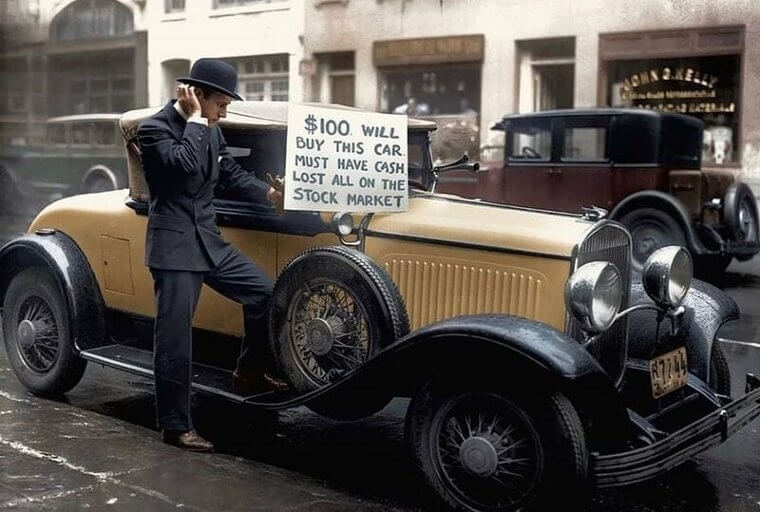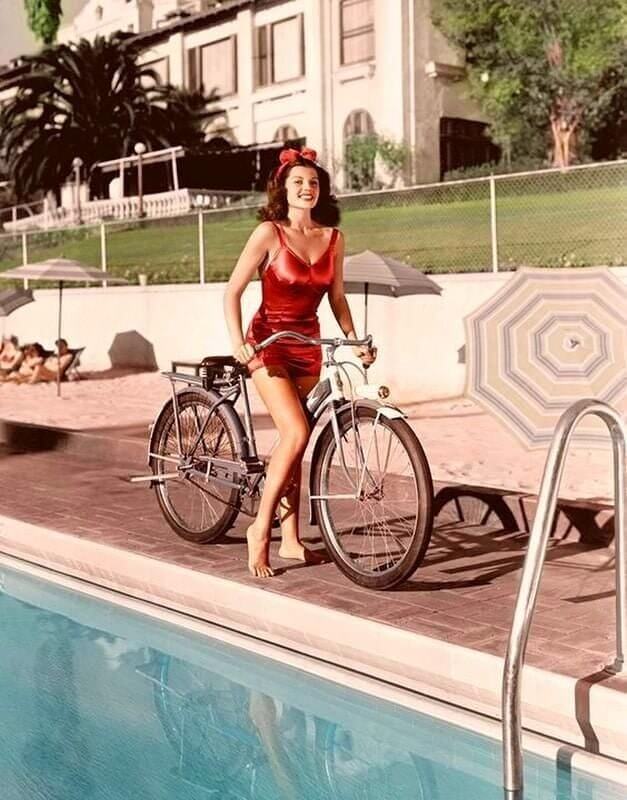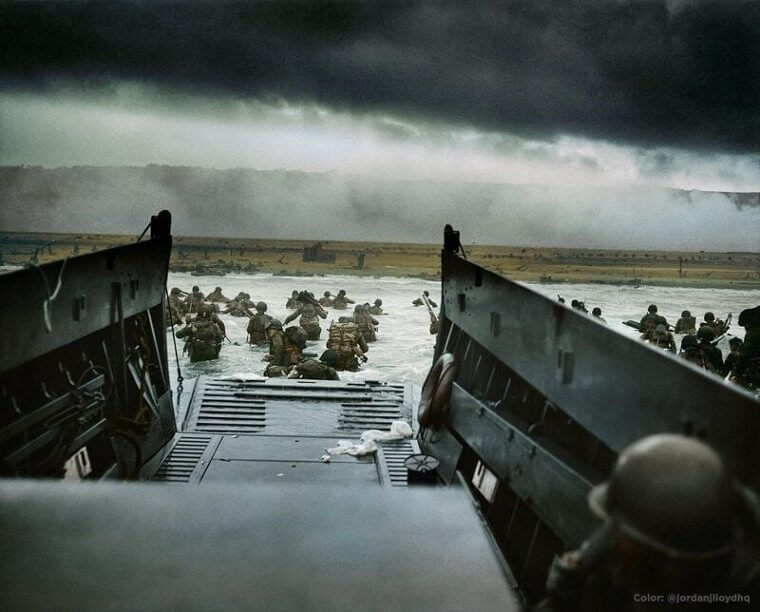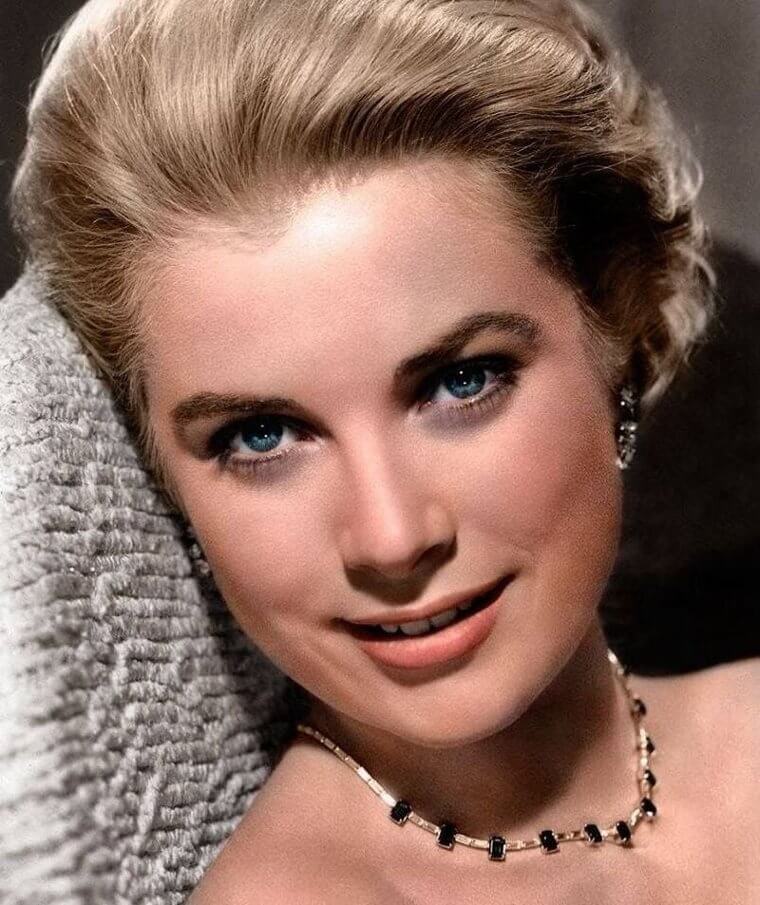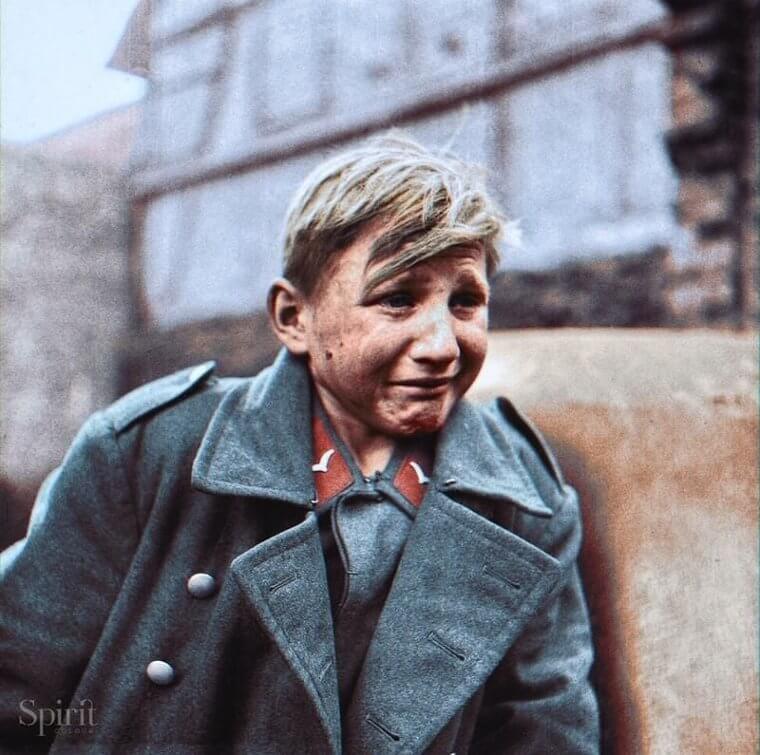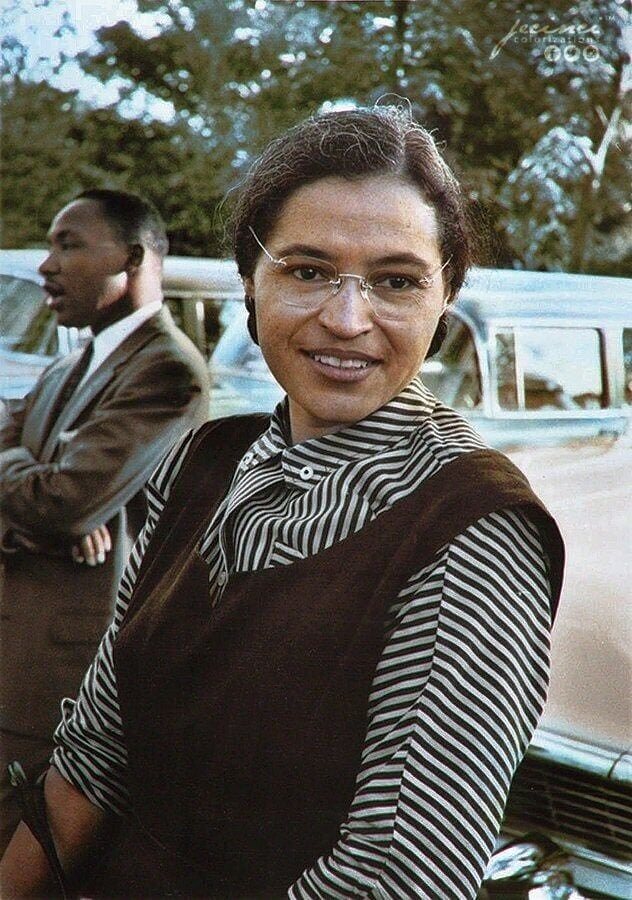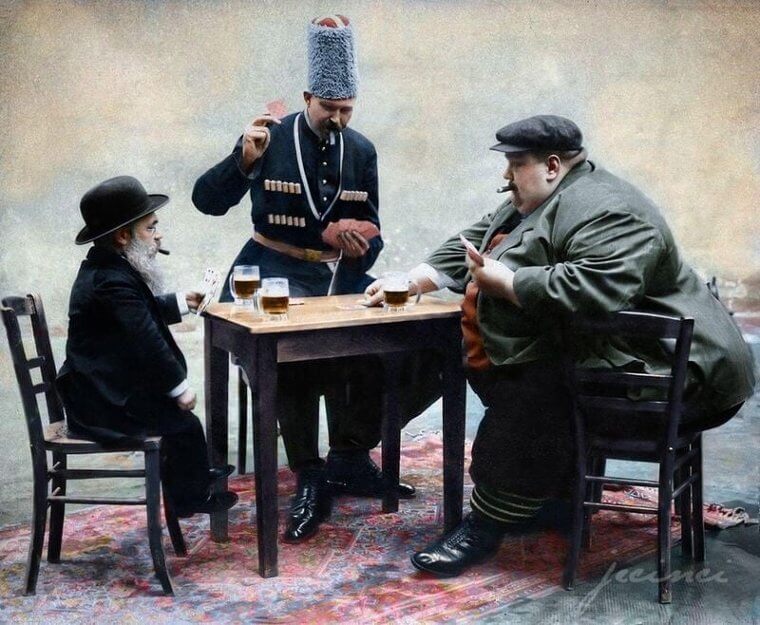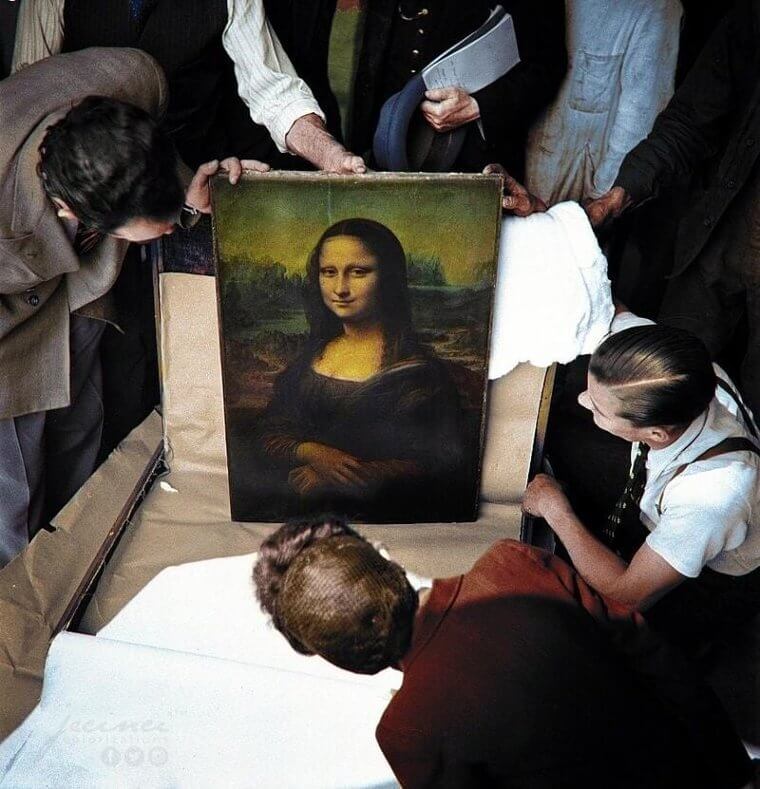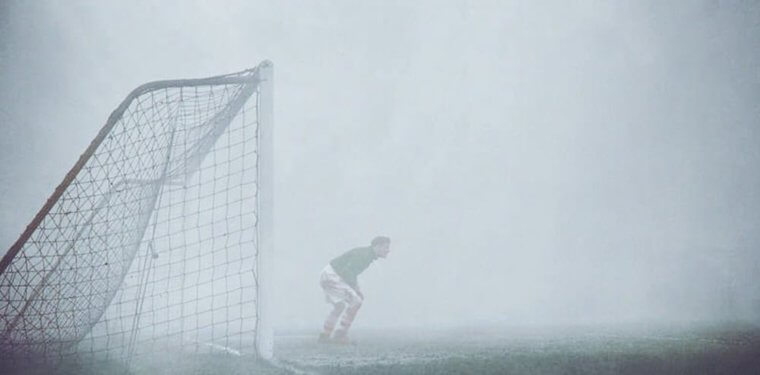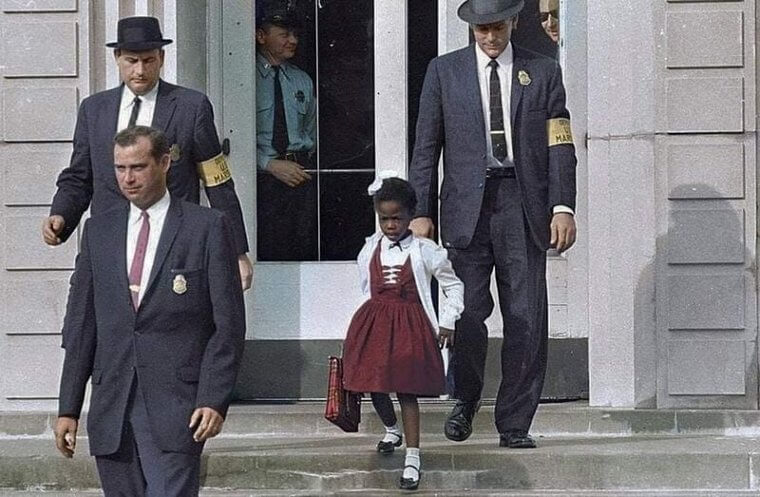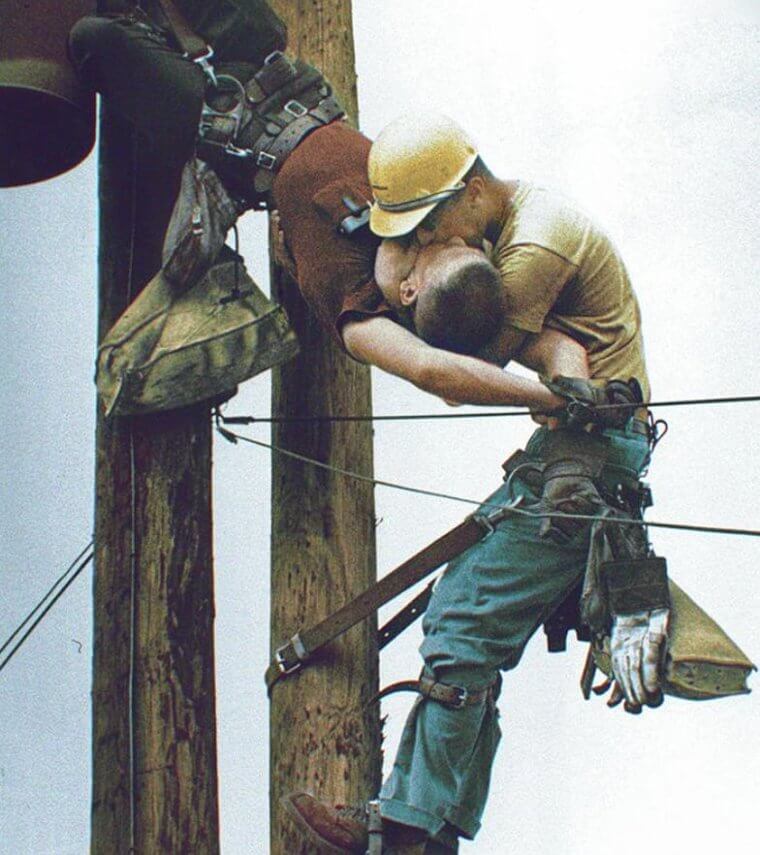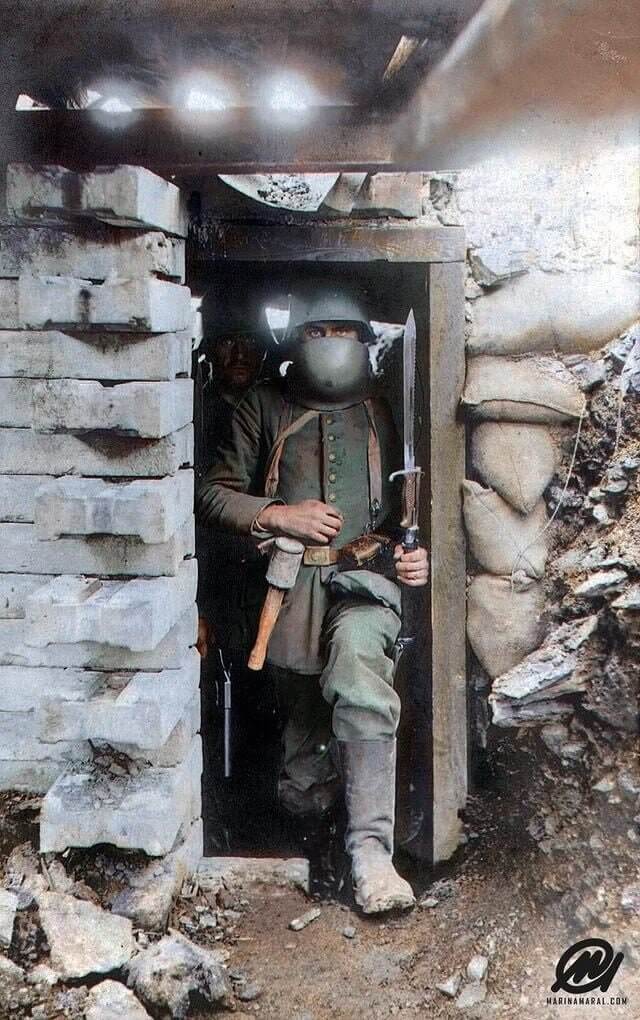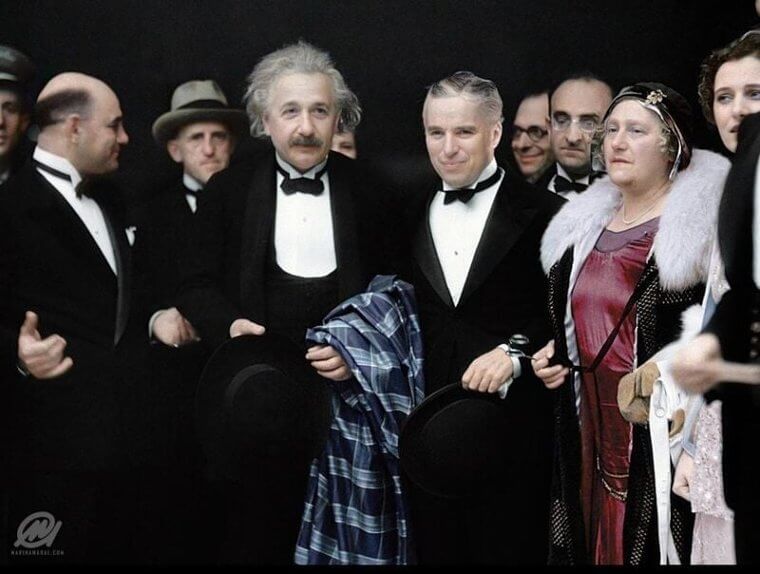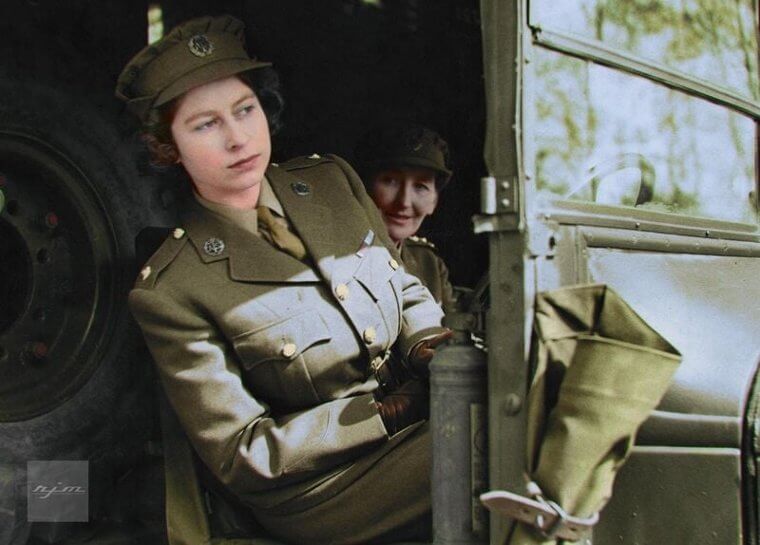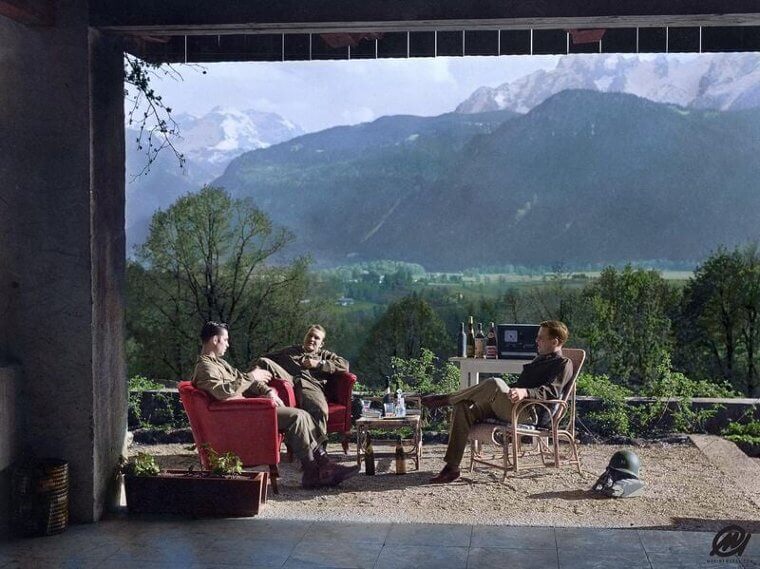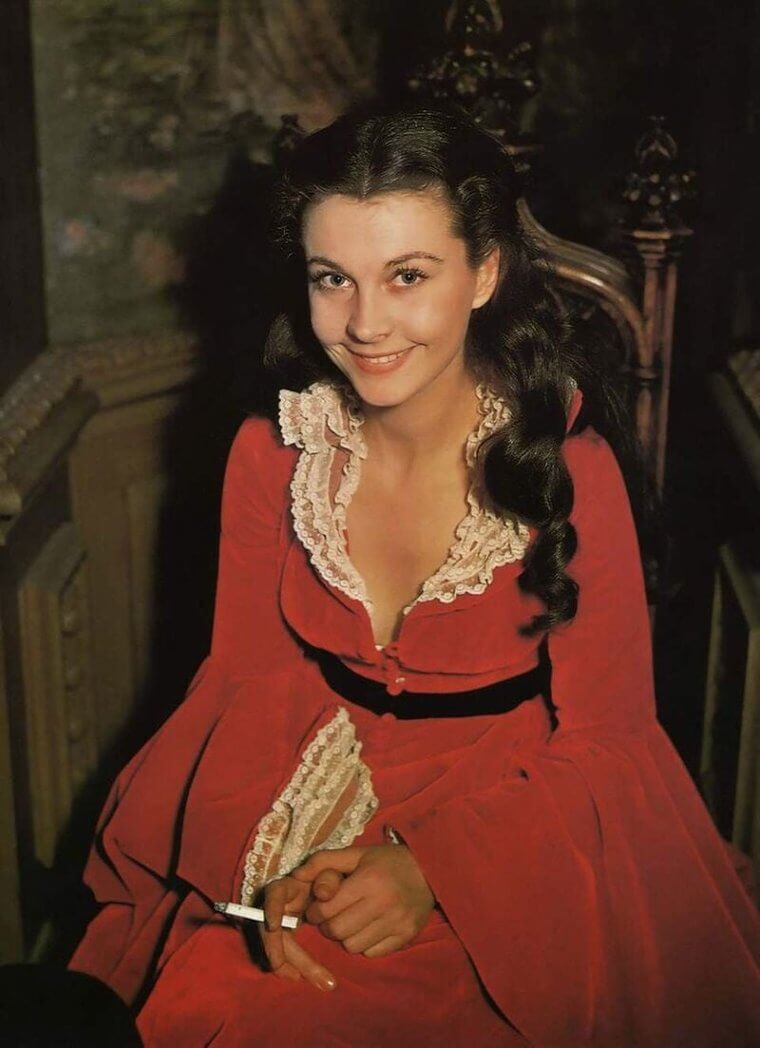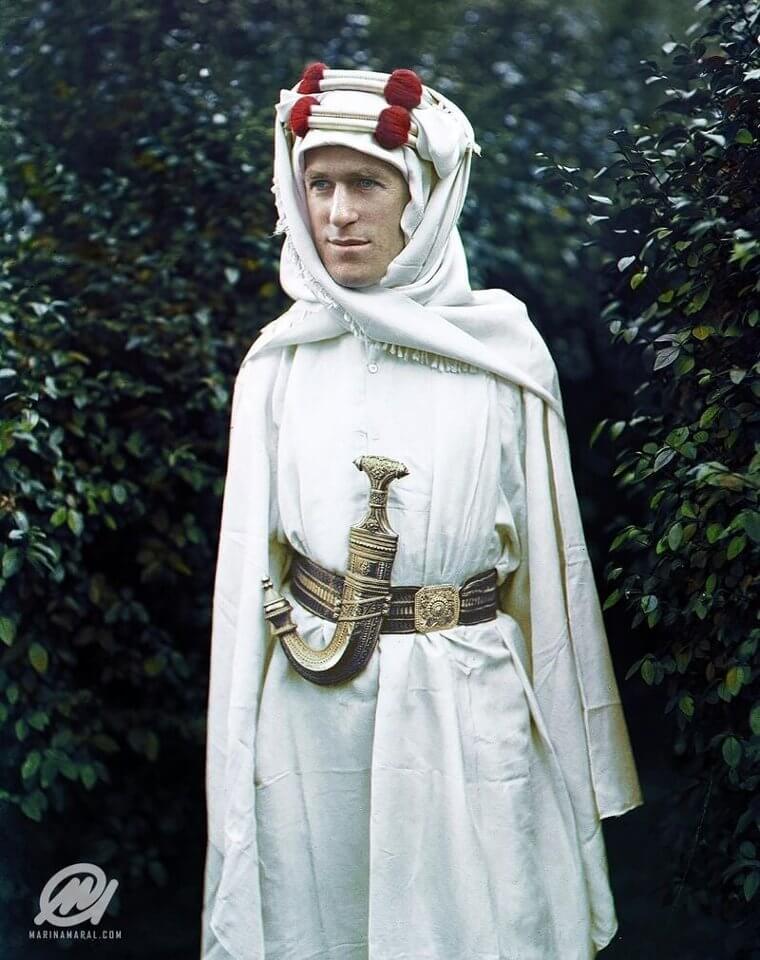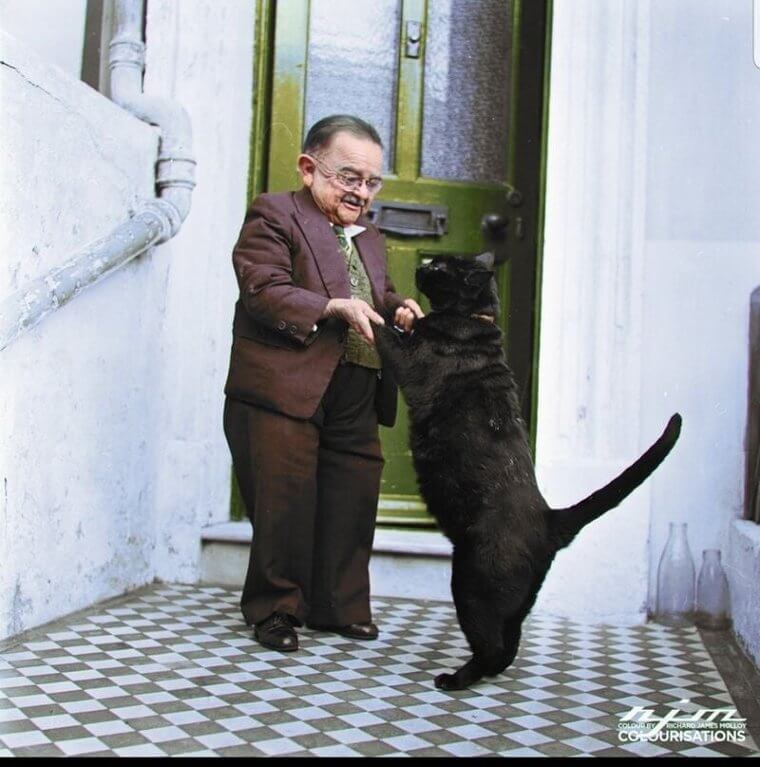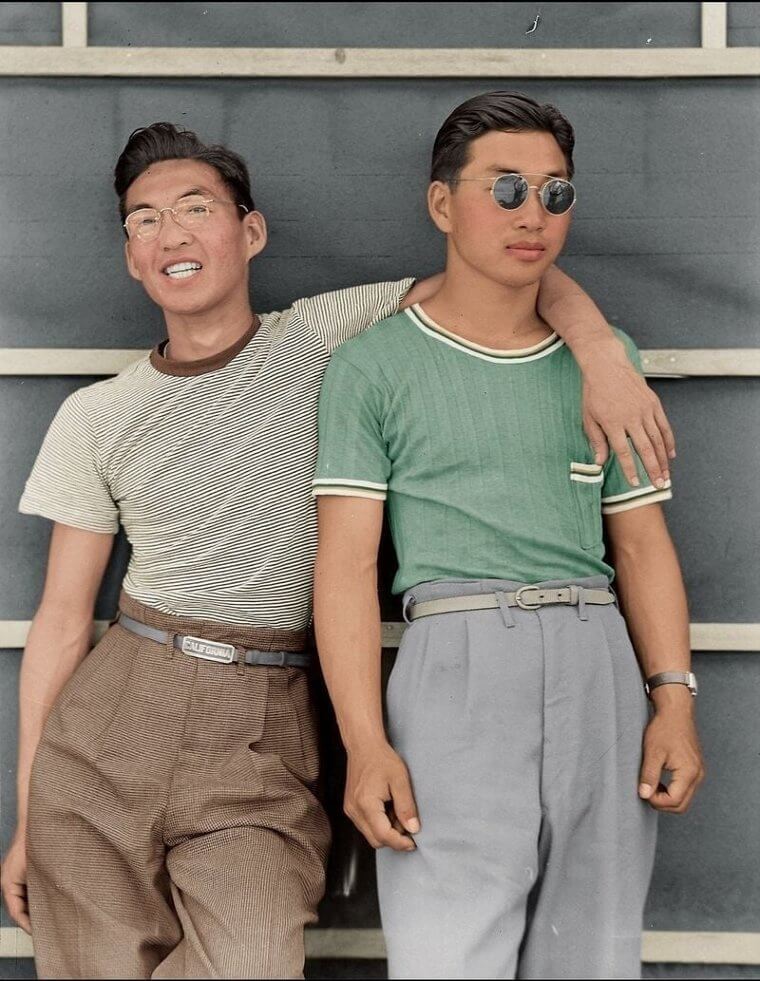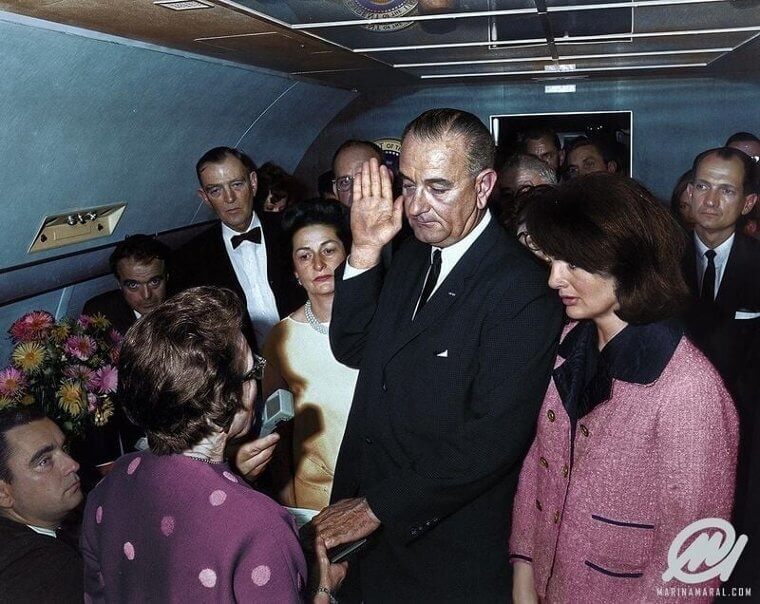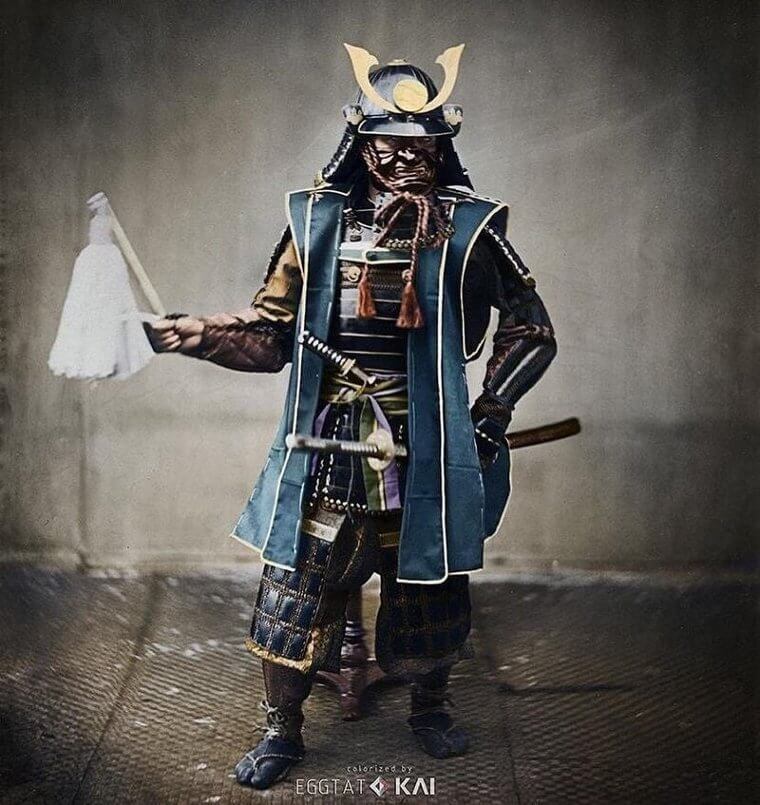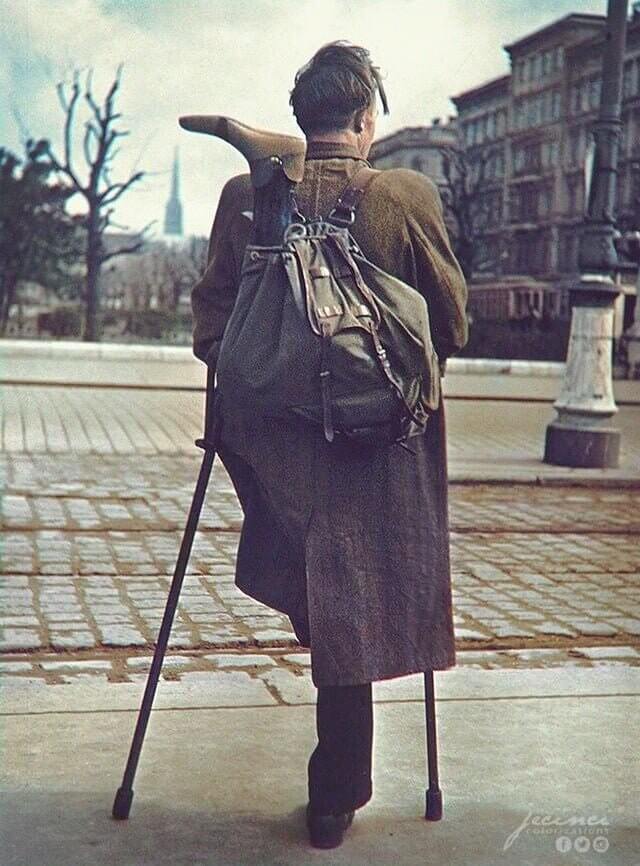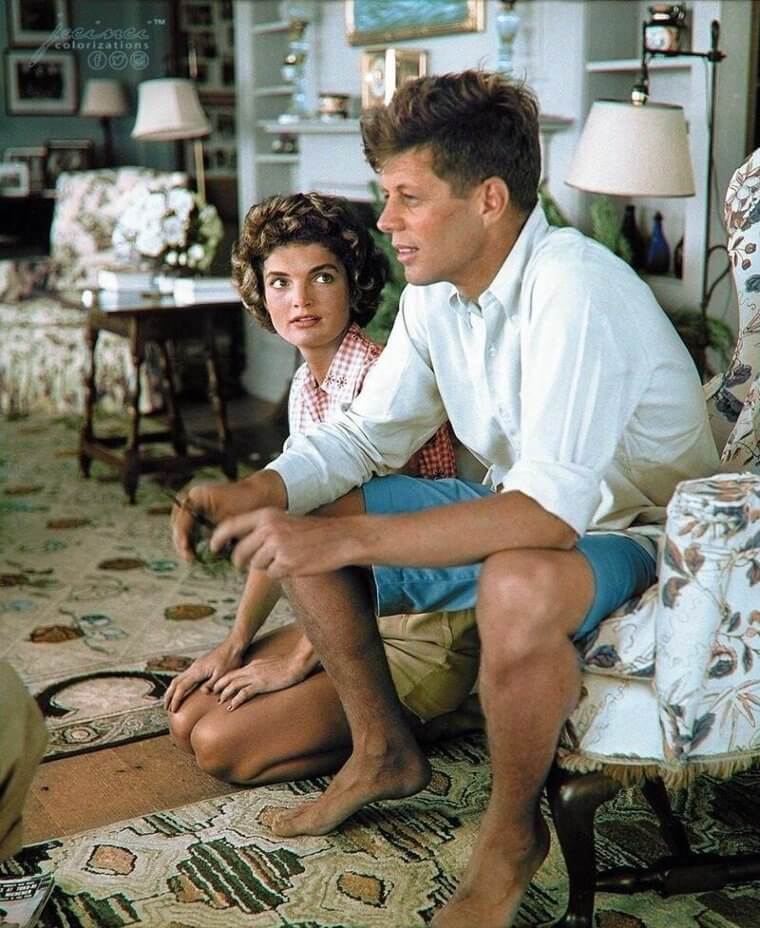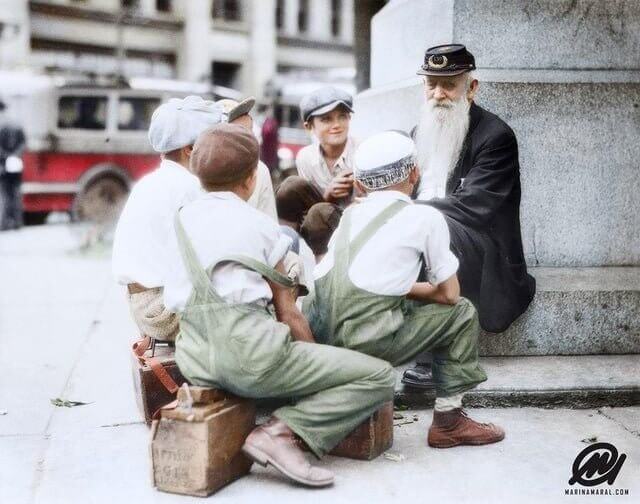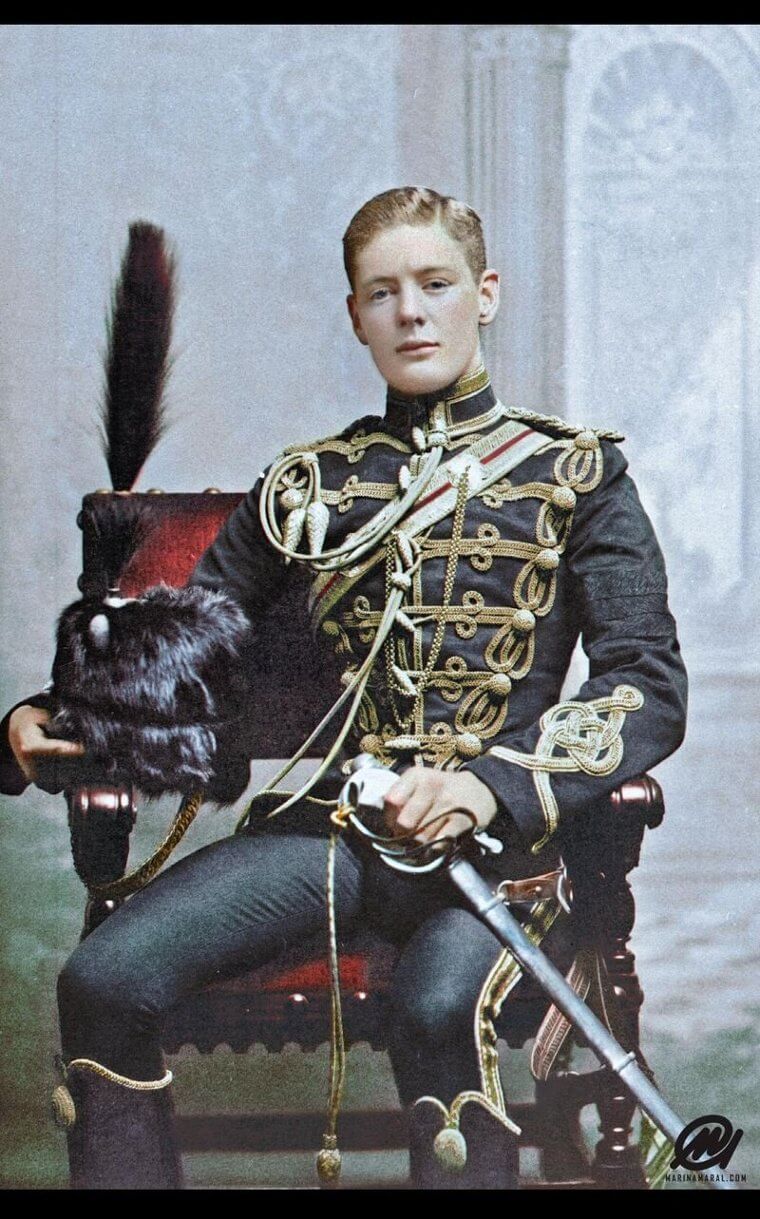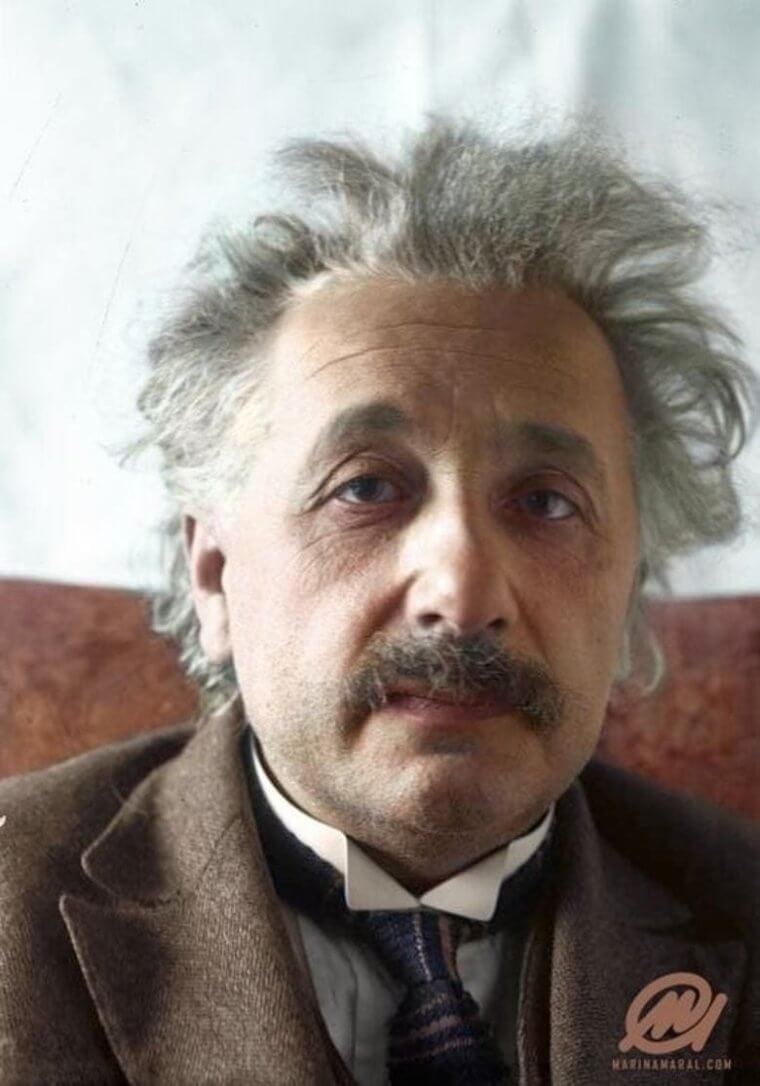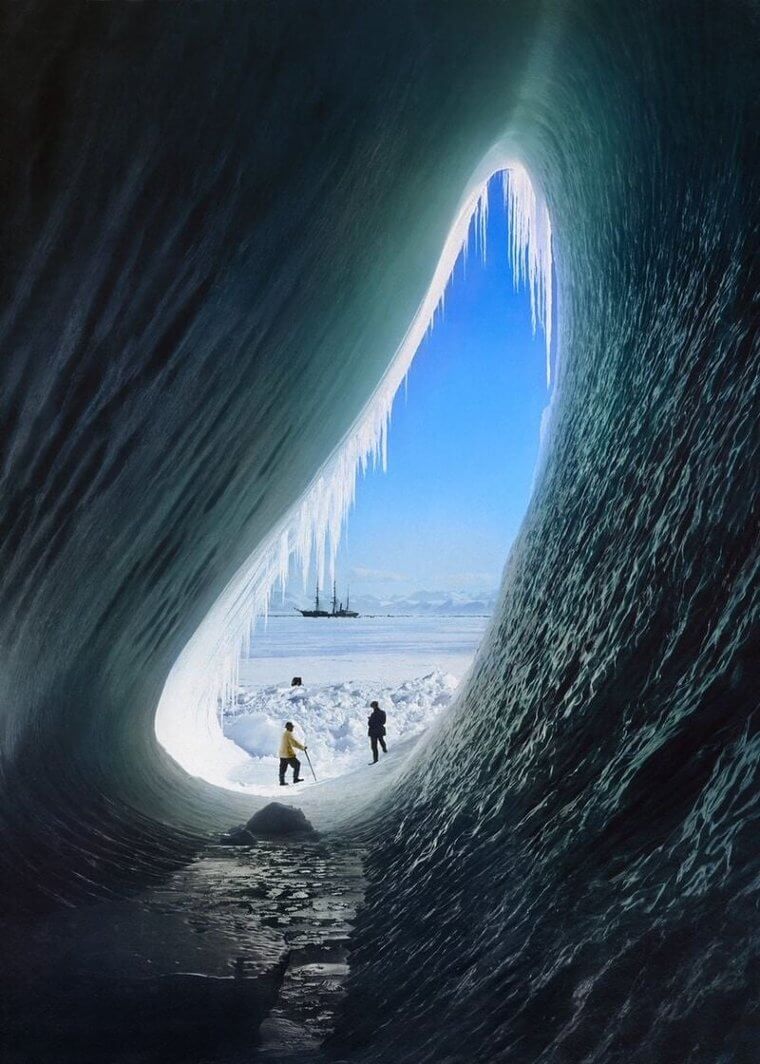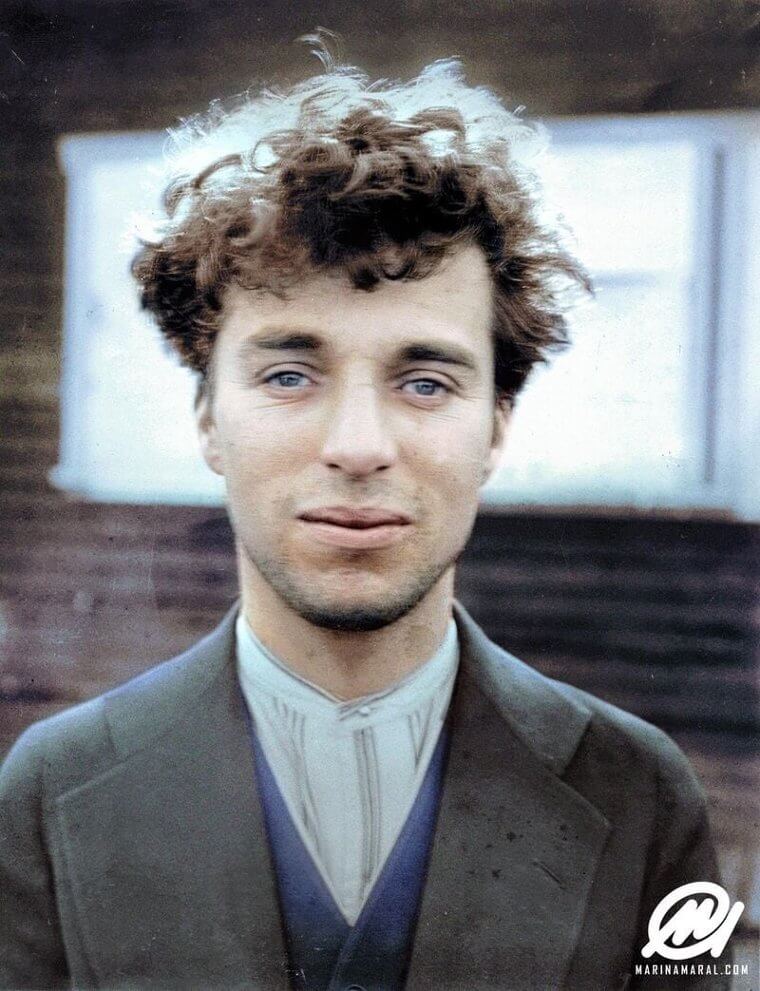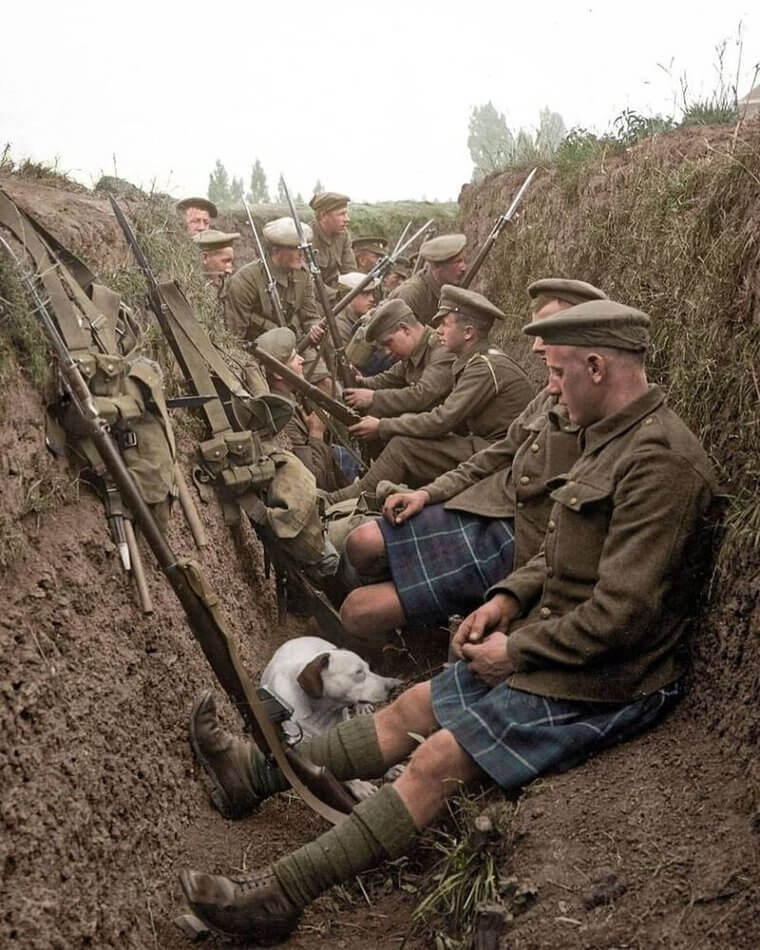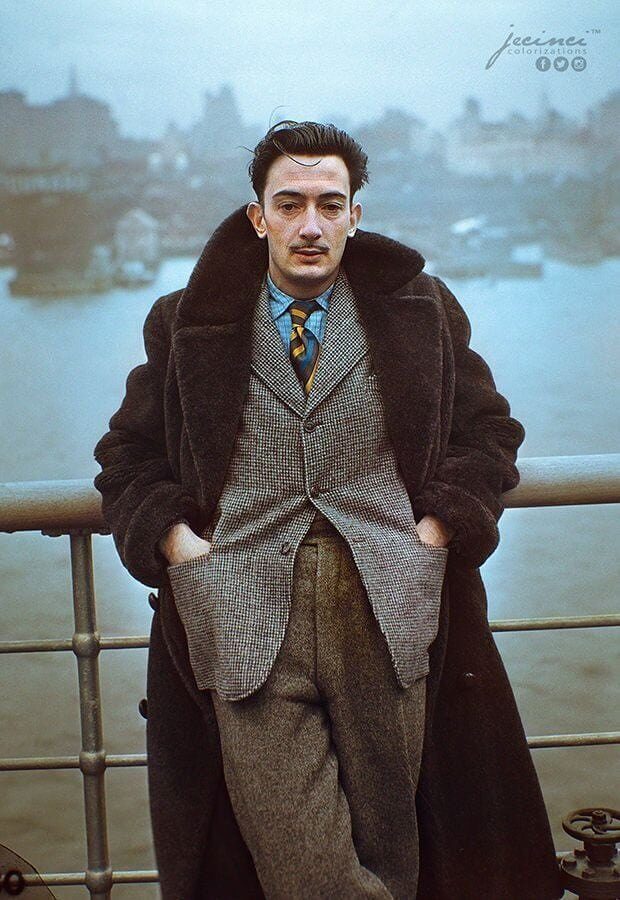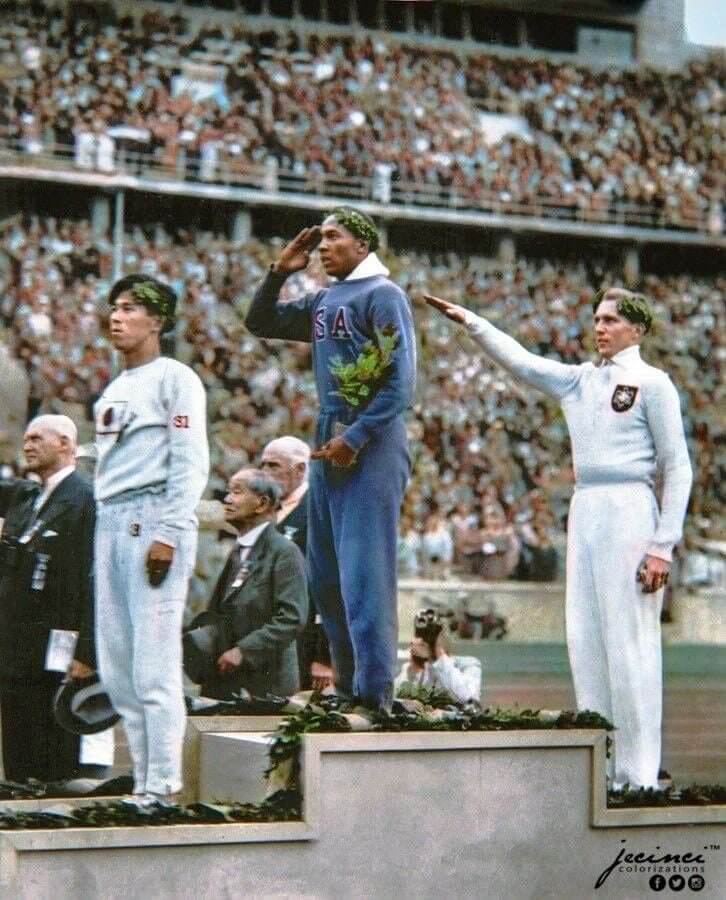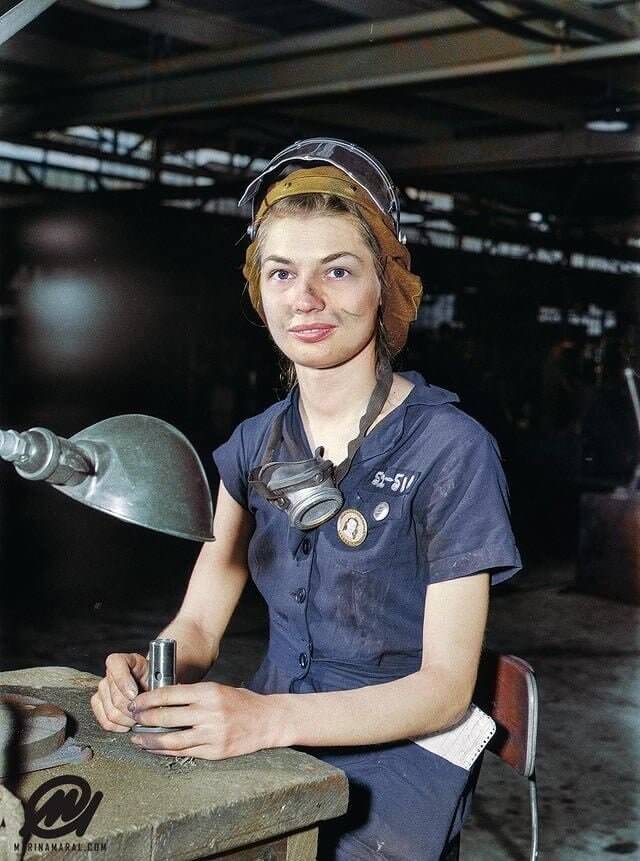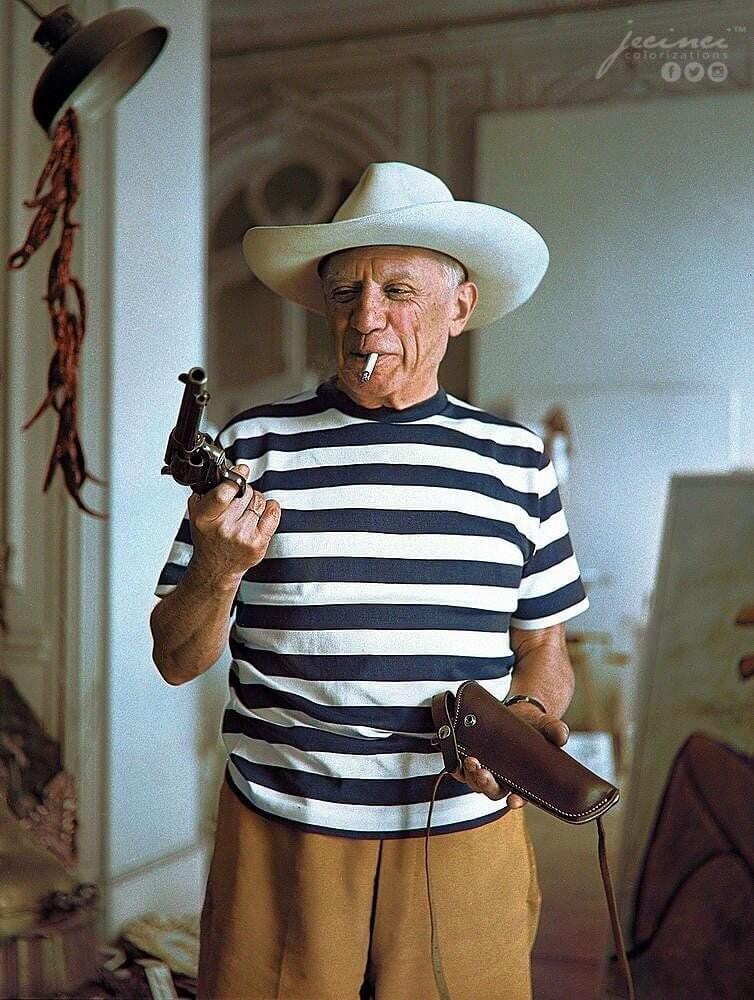History, often seen in black and white, is far more vibrant than those two-toned pictures suggest. Some black and white photographs have been enhanced with vivid colors, a visual treat for many, but not always suitable for everyone. These images from the past shape our future, offering insights we can learn from. Now, we can revisit them in full color, capturing finer details with greater appreciation.
The Hitchhiking Trend in the 1960s and 1970s
Hitchhiking emerged to be a popular method to get from point A to point B during the 1970s. It is free but can come with considerable risk. After all, you are hopping into the car of a stranger. This method actually had its origin during the cart-riding days but gradually evolved to modern hitchhiking with greater access to modern modes of transportation such as cars.
The act of sticking out your thumb on the side of the road with hopes of a random car to stop started during the Great Depression period. As risks and crimes evolved, this trend slowly waned down and more of memory at present times.
Desperate Times Call for Desperate Measures
America met its lowest day in the stock market on a Tuesday. Termed Black Tuesday, October 29, 1929, became a nightmare for many people. Wall Street invested 16 million shares on the New York Stock Exchange but lost billions in one day alone.
Black Tuesday was the final attempt to stabilize the ailing market by the massive purchase of stocks. It ended unmistakably bad. This pushed the whole United States to enter into the so-called Great Depression. Like the guy in the photo above, people were willing to trade their luxurious cars for a small amount of cash.
Rita Hayworth Shining in Hollywood
Rita Hayworth rose to stardom in a peculiar period in Hollywood. There came a time when new stars were treated as bare canvasses so they could perfectly mold into any film that they are contracted to do. They were ‘stripped’ of outward uniqueness to blend into any role. Born as Margarita Carmen Cansino, Hayworth had her overhaul in appearance starting from thinning her hair through electrolysis.
According to Director George Cukor in an interview with The New York Times, Hayworth had an innate shine that radiates in every role she does. With elegance and talent, Rita was able to deliver her roles better than anticipated.
Many Marching Blind
At a time of war, there is so much uncertainty in the lives of the people particularly soldiers. On the historic day of June 6, 1944, fighters from the American, England, and Canadian regions launched an attempt to regain the Normandy beaches from the hands of the German army. It appeared that many of them did not have a clear idea as to what they had to do but had a much clearer picture of real uncertainty ahead. They knew the chance to go back home after it was extremely slim.
One of the survivors was Sergeant Tom Jensen of the 626th Engineer Light Equipment Company. In an interview with Chicago Tribune, many of them were led into battle with no clear briefing at all. Some even thought they were heading to Japan, not Normandy. The whole situation had lots of loopholes, considering that many of these soldiers were just ordinary young civilians just a few months earlier.
Grace Kelly Also Met Bullies in Life
Grace Kelly had always been a beauty. In five years, she was able to launch her acting career to another level. Growing up as the daughter of a three-time Olympic medalist with his construction and with a mother who was a champion swimming athlete and model, everything seemed on the right track for her Hollywood career. Upon graduating from high school, she aimed to be financially independent. She worked her way out to modeling and took whatever stint she can get.
Along the way, pretty Grace Kelly also encountered some unwanted comments like her having a chin that was too wide. It was not a walk in the park when she started her journey. It took time, and when the right project came, Mogambo became her way to the top. Her acting skill was acknowledged and she even got a Best Supporting Actress Oscar Nomination and the Golden Globe as well.
The Versatile and Captivating Spy Mata Hari
Mata Hari was a gorgeous performer and spy. She knew she had the skill to impress and influence people. These characteristics made her a very interesting character.
Mata Hari had a lust for excitement which eventually caused her early life to be cut short. Before her passing, she had numerous close call encounters with danger lurking around, yet she always found a way to survive.
16-Year-Old German Fighter Devastated From the War in 1945
In war, it is hard to decipher who actually wins. Losses are always heavy on opposing sides. Young or old, the devastation is real. Take this photo shot by John Florea for example. This young 16-year-old had too much going on for his age. His parents passed away a year before this photo was taken. Hans-Georg Henke then joined the Luftwaffe to support his siblings.
On April 3, 1945, he fell into captivity by the US 9th Army. A sense of distraught and shock consumed the young soldier. The war has never been a good way to live for the young and old alike.
Rosa Parks and Martin Luther King Jr in 1955
Rosa Parks was the regular seamstress in a shop in downtown Montgomery, Alabama when she hopped on the bus on December 1, 1955. When she got off the bus, she was no longer the ordinary person that she was, but a prominent person in the civil rights movement. When the bus got crowded with white passengers, she got told to move to the back to make way for the white passengers. Instead of being pushed, she stood her ground and stayed where she was.
She got arrested for the crime of seating comfortably while being a black person. It sparked a 13-month boycott on the city’s buses. This was considered to be the first and biggest black activism act then. It put more light on King’s efforts for civil rights movements and the rest became history.
Truly Three of a Kind
At a first glance at the photo, it is easy to tell the distinct physical variation among the three men. In 1913, this photo was taken and claimed to capture Europe’s shortest, tallest and stoutest man at the time. Three of a kind with very unique attributes, their differences never became a hindrance for the trio to join together and enjoy a game of poker.
It fascinates many people as it reminds them of the peculiarities in human nature but still being able to find a common ground to spread some fun and love. In an era full of chaos, who would not want to see such an enlightening picture?
Unwrapping Mona Lisa After the War in 1945
The midst of World War II was not the best time for artifacts to be displayed. These prized works of art were kept away including The Mona Lisa. Before being hidden, it actually suffered being stolen a few times. To keep it safe, Director Jacques Jaujard of France’s National Museums carefully planned a way to secure the items.
On August 25, 1939, Jaujard closed the Louvre for three days “for repairs”. This attempt was made possible when Germany and the Soviet Union declared a Nonaggression Pact. They moved statues and took paintings off their frames where possible. They placed these items in wooden crates with special markings for identification. On the 28th of August 1939, hundreds of trucks filled with thousands of crates were transported to the Loire Valley away from bombing hotspots.
Some Stars Simply Never Experienced Being Out of the Spotlight
Young Brigitte Bardot had it all. As an idol in the 1950s and ’60s, she is always seen in the spotlight. This photograph captured the stunning actress under the bright summer sun, much like her life always being in the limelight. No man in her time did not appreciate her beauty and persona.
In an interview with The Guardian, she claimed to have never experienced being unknown in her life. She craved anonymity. It appeared that the star hardly had enough time for herself alone in many public places.
Sometimes, a Goalkeeper Needs to Stop Looking for an Elusive Ball
This photo is one of those few images that can show a man’s perseverance and determination to see the light despite life’s fog ahead. In a game in 1954, Arsenal goalkeeper Jack Kelsey was photographed carefully looking out for the ball that might jump out of the fog any second. An interesting story from 1937 was often linked to this very image...
In 1937, a foggy Christmas day caused the game between Chelsea and Stamford Ridge to be called off after 61 minutes. It turned out nobody was able to tell the goalkeeper of the cancellation. Having his own thoughts of what was going on behind the fog, he patiently waited for a ball until 15 minutes later when a policeman found him. Confused, the situation later got cleared up. Upon entering the dressing room, everyone was already changed and could not help but laugh about the whole scenario.
The First African-American Desegregation to an All-White School
Ruby Bridges was only six years old when she played a huge role in the civil rights movement. The start of integration of black students into an all-white school in the South started with her enrollment in Franz Elementary School in November 1960. Being a new concept in society before, she had to be escorted by federal marshals because of safety threats.
She did everything by the book from passing the entrance exam down to her enrollment. Nevertheless, the move was met with threats and resistance as the parents of her schoolmates removed their kids from the school due to the Ruby's attendance. She successfully graduated high school a decade later, and not long after, the Ruby Ridges Foundation was established, promoting tolerance and equal chances in education.
Mouth-To-Mouth Resuscitation Whenever and Wherever Required
Often labeled as “The Kiss of Life”, this photograph captured by a passerby Rocco Morabito sure has one story of a lifetime to tell. In 1967, Randall G. Thompson accidentally touched a low voltage line while working on a telephone line. Colleague J.D. Thompson with his quick thinking immediately commenced mouth-to-mouth resuscitation with a positive outcome.
Consequently, Morabito was driving by on West 26th Street when he saw the incident and took a quick picture after calling for an ambulance. The life-saving act was captured and shared with the rest of the world to remind them how precious life can be.
Emerging From a Dugout Fully Covered and Ready to Battle
World War I left many soldiers six feet under the ground, and sometimes deeper may they be alive or not. Trench warfare was present during the war where fighters dug out deep ditches to serve as a fort and last stand. Long narrow trenches were created throughout the Western Front across France and Belgium. These serve as homes for weary soldiers for weeks each time.
As it turned out, many lives were lost in trenches as they emerged to the ground to face enemies. It had a purpose and a risk of becoming like a trap as well. Trying to be as prepared as can be, this German soldier in the photo got all geared up during World War I as he comes out of a dugout.
Elizabeth Taylor Making Her Mark in the 1950s
Elizabeth Taylor was a famous English actress in the early days with an equally controversial personal life filled with marriages and a distinct lifestyle. Everything was scrutinized as she became part of the show business world for quite a while. Her career started in 1941, but her most distinguished role came in 1951 with the film Giant acting opposite James Dean and Rock Hudson.
Taylor is renowned for her beauty, violet eyes, and tumultuous personal life. She starred in classics like "Cleopatra" and "Who's Afraid of Virginia Woolf?" Beyond her acting, she was a philanthropist, particularly dedicated to AIDS research and advocacy. Taylor's charisma and talent left an indelible mark on the entertainment industry, making her a beloved and enduring figure in cinema history.
When Historically Brilliant People Were Alive and Actually Seen in a Photograph Together
Albert Einstein was not always the serious genius that people usually imagine him to be. He can be funny, creative, and artistic in his own way. This quirk made him a friend of another fellow artist Charlie Chaplin. These two brilliant people in history met through a common friend, Carl Laemmle who was then the head of Universal Studios. The two pals were present in the premiere of City Lights in 1931 together with Einstein’s wife Elsa.
Both of the geniuses envied each other. Einstein claimed that Chaplin has enviable fame being understood widely without a word spoken. Chaplin on the other hand envies Einstein as he was being admired by everyone although nobody really understands him due to his level of intelligence.
When a Princess Served as an Ambulance Driver During World War II in 1945
World War II was a war fought by almost every country in the world. Every capable person was needed to help out in whatever means necessary. Princess Elizabeth felt the need to contribute as she knew she was physically capable to do something. She pestered her father for months to get permission.
When she turned 18, she got permission to join the Women’s Auxiliary Territorial Service. The princess learned the basics of mechanic and truck driving while serving as an ambulance driver. Queen Elizabeth may not be seen as someone who knows how to do manual toiling, but she sure did in her younger years. Freedom needed her to contribute and she did.
Seeing the Beauty of Adolf Hitler’s Home in the Bavarian Alps in 1945
Adolf Hitler terrorized many countries across Europe. He also amassed many homes and chalets for personal use, stolen from those he ruled over. By the end of World War 2, they were all seized back. His stunning home in Obersalzberg of the Bavarian Alps near Berchtesgaden was bombed off on April 25, 1945, and was set to flames a week later by the retreating SS troops.
Few hours after the incident, the US and French troops entered the house through underground access. Thinking they deserve some treat, they scouted for any remaining alcohol in the place before looting it entirely. One of the most distinguished items taken by the American forces was a globe designed explicitly for Hitler.
Vivien Leigh Wearing Her Costume for the Role of Scarlett O’Hara
The 1939 movie Gone with the Wind had Vivian Leigh playing Scarlett O’Hara, a young woman from the south. Although she was originally from England, she got the role and had a rather interesting opinion about the movie when it was finished. When she arrived in Los Angeles for the filming, she appeared to have manic episodes and quite a pain to work with.
Worst of all, she thought the movie would be nothing but a failure. Her partner Laurence Olivier shared the same negative opinion. They were extremely pessimistic to the point of thinking far ahead in their career as to what they can do next after the movie fails in their eyes.
A Look at Colonel Thomas Edward Lawrence AKA Lawrence of Arabia
World War I was an era filled with terror and destruction. Colonel Thomas Edward Lawrence became a prominent name in the field of demolition in the Middle East. He performed as a demolition artist in alliance with Arab rebels. Ensuring the destruction of target bridges and depots under the Ottoman Empire became his forte. His record showed 79 bridges that were blown away.
The damage was so extreme that these structures had to be completely torn down before any form of reconstruction could happen. Some rubbles were left by the Turkish militia rather than deal with it.
The Smallest Man in the World Dancing With His Pet in 1956
Henry Behrens held the record for being the smallest man in the world during his time. With just about 30 inches in height and a weight of 32 pounds, he was able to join Burton Lester’s troupe of small people. It was a fact that Behrens developed a peculiar liking for odd things in life or anything out of the usual.
He himself was not the typical man but he enjoyed the attention that went with it. He loved the spotlight and all that comes with fame. Dancing with his almost equally tall pet cat in his doorway is one way to say he enjoyed what he possessed, and he did not mind any outside attention at all.
Japanese-American Senior Students Displaced to an Internment Camp in 1942
The historic attack against Pearl Harbor on December 7, 1941, caused the forced displacement of Japanese-Americans into the west coast internment camps. These camps are more like prisons with extremely bare rooms devoid of any sort of furniture. The only things present were army metal beds and a stove.
This was the description given by Aiko Herzig-Yoshinaga who was one of the relocated students in a camp near Death Valley. The act done by the Americans was more of a result of their fear towards the Japanese for another surprise attack.
Presidential Oath-Taking Aboard the Air Force One
On November 22, 1963, the assassination of John F. Kennedy was a shock for all Americans. He was shot while driving through Dallas. The senior officials were caught in limbo as they needed to fill in his spot as soon as possible to prevent further chaos. Vice President Lyndon B. Johnson was right away sworn into presidency aboard the Air Force One while it was positioned on the Tarmac at Dallas’ Love Field.
The photo captured the atmosphere of the tragic day full of anxiety and sadness. Johnson stood beside his wife Lady Bird Johnson and the distraught First Lady Jacqueline Kennedy. A tragic loss occurred and to be able to deal with it better, a new president needed to be declared immediately and for this event, within the official presidential airplane.
A Traditional Armor Worn by a Japanese Military Commander in 1863
Dating back to the mid-1800s, this image taken by Felice Beato had a rather interesting origin. Its original version had been hand-colored by the snapper. He preferred to emphasize the beauty of traditional costumes and ways, hence the appearance of full-length portraits in many of his works. This costume was worn by a samurai or a Japanese soldier belonging to the noble class.
History said these people lived by carrying out the orders of their rulers. This became the life of a samurai from the 12th century until the mid-1800s. A soldier’s outfit full of intricacies, it sure appeared to provide defense and effective offense for the wearer of the armor.
Sally Field Was Destined to Enter Stardom at the Right Place and at the Right Time
Actress Sally Field had no prior background in acting when she landed the role of Gidget in the 1965 film. The photograph showcased her rawness as an actress yet with great potential to deliver a role effectively. At the young age of 18, she got the role of a seemingly reckless surfer lady. Field shared how fortunate she was to have landed the role.
During the audition, she could not help but see many great-looking actress wannabes who could have gotten the role instead of her. Nevertheless, the casting director saw her raw edges and the true potential to shine.
The Liberation of Bergen-Belsen Was a Process
On January 27, 1945, the Soviet Army soldiers made a shocking discovery along their journey to Auschwitz. They bumped into a warehouse packed with various belongings of the Nazi victims such as prosthetic limbs, shoes, eyeglasses, and pots and pans. They initially thought the whole place was nothing more than an abandoned warehouse.
As they searched the place more thoroughly, they discovered several sick and dying victims left by the Nazis. In a description given by soldier Georgii Elisaverskii, the victims fell on their weak knees, kissed their overcoat’s flaps, and even threw their arms around their legs. They witnessed the remaining strengths of the victims desperately yearning for help.
Sophia Loren on Being a Standout Italian Beauty
Having had her acting debut at 17 years of age, Italian Sophia Loren steadily grew to stardom as an attractive actress with a talent to boast. Her first film ever was Quo Vadis in 1951. From that stepping-stone, she evolved to a more versatile actress conquering roles of a seductive lady and even a comedic role.

In several interviews, she displayed great self-awareness when it came to her strengths and weaknesses both as a person and as an actress which was highly remarkable in the show business world.
A Returning Soldier Standing Tall With One Foot
Veteran photographer Ernst Haas has a lot of things going on in his 40-year career. He has both an eye for photography and a strong sense of what an image should be. His works are filled with art and substance. The photo he took was of a soldier returning home from service in Vienna Australia. He had a photo essay called “Homecoming” which depicted the harsh reality after the war. The photo says a lot of messages to its viewers.
A soldier returning home, looking ahead for a brighter future, and still standing tall with his remaining one foot. It gives you a sense of what a tragedy the war can cause and a feeling to keep moving forward. After its release, he was flooded with various offers from employers all of which he turned down. He claimed that for him to do what he is good at, he needs to be his person and not dictated by anyone else.
When a Photo Captures the Gaze of Love and Admiration
On July 4, 1953, John F. Kennedy and Jacqueline Bouvier got engaged in Cape Cod. The look of a person filled with love and adoration was captured in the photo. Jacqueline’s eyes were highly expressive and could only be said that she had eyes only for John F. Kennedy. They tried to keep the said event memorable by having a reporter capture the blissful atmosphere.
On July 20, Life Magazine printed an entire issue focused on their engagement photographs. With her husband’s untimely passing, Jacqueline could only appreciate all the magic he has brought to their relationship until the very end.
Pausing a Minute to Gather and Hear Out an Old Civil War Veteran
Civil War felt to be centuries ago already, but truth be told some Civil War veterans passed through the 20th century just fine. There was news that the very last veteran died in 1956, however it was believed that there were still a few more alive at that time but unrecorded. In such an era, young men were often sent to battle as long as they can hold a gun and follow commands.
For anyone who lived past it, endless stories about their experiences simply overflow from those survivors. The group of bootblacks in the photo took the time to gather and listen to a great survivor’s story during the war. It would be like listening to fiction like a story but is actually a real-life experience. Their stories will be forever treasured.
Winston Churchill as a Member of the Queen’s Cavalry at a Settled Period
The young and dedicated Winston Churchill served as a Cornet in the fourth Queen’s Hussars Cavalry in the year 1895. At such time, he understood that he was serving during a fairly settled decade away from wars and trouble. England was considered unchallenged at the time as a military group.
Still being young at 21, he had the urge to keep himself occupied and productive. He got himself divided between a five-month extended leave and a seven-month summer training. In 1895, he went to Cuba to seek a personal quest before moving on to India together with his army.
Albert Einstein Was Both a Scientist and an Artist
As someone who lived in a different period from Albert Einstein, it is easy to think of the brilliant genius as a faultless mathematician full of drive and seriousness. He never considered himself an all-knowing genius, but an artist whose forte was in science.
In an interview with Saturday Evening Post in 1929, he had inclinations to believe in intuitions and inspirations. His gut feeling allows him to feel things that are right but not necessarily know that something is actually right. Imagination is crucial in his craft as it is limitless. Knowledge is power but can have boundaries.
Capturing the Beauty of the Arctics
Arctic explorations became the next trend in the early 1900s. Discoverers were all over the place aiming to reach new milestones in the Arctics. At the time, no one had reached the South Pole yet. Bold British explorer Robert Falcon Scott ventured out on a Terra Nova expedition in the pursuit of reaching the South Pole. As expected, they encountered countless obstacles in the cold. After nearly a year of travel, they reached their goal on January 16, 1912.
They were surprised to see a flag, which meant that somebody had landed earlier than them. Norwegian explorer by the name of Roald Amundsen marked the territory just a month earlier before Scott’s group’s arrival. Along the course of these events, Geologist Thomas Griffith Taylor and Meteorologist Charles Wright were able to capture a breathtaking photo with the view of the Terra Nova ship from the entrance of an iceberg grotto.
The Look and Life of Young Charlie Chaplin in 1916
A performer’s versatility can mask aspects of his true self. Comic actor Charlie Chaplin, famous for his role as the Tramp, had more things going in aside from being the jolly bowler hat man he portrayed on screen. Life for young Charlie Chaplin was not so easy. His family lived in poverty while his mother had an ailing acting career.
Good fortune took his side and he quickly rose to fame from London to America. In his performance in the New York vaudeville world, Chaplin shared that the Tram concept had something to do with his father. He imagined his father’s alter ego full of optimism amid chaos.
Soldiers Take Some Rest Too
World War I was a time of great disorder in many areas of Europe as Central Powers from Germany, Austria-Hungary, and Turkey tried to take control. Massive brutality was never prepared for. Smaller countries such as Scotland and its Seaforth Highlanders grouped against the controlling forces in 1881. This union was created after the 72nd Highlanders and 78th Highlanders merged.
Initially, these groups of Highlanders were on duty in India but had to quickly redeploy to France in 1914 for the Battle of Givenchy before relocating to Iraq and Palestine. The picture above showed the Seaforth Highlanders taking some rest with a dog in a shallow trench. This was shot in August 1915 near La Gorgue, France.
Salvador Dali on Board the S. S. Normandie While Docking in the Big Apple in 1936
Salvador Dali was a famous Spanish painter born in 1904. He was greatly known for his skilled draftsmanship and bizarre concepts which makes his works feel timeless. His frequent trips to New York at an earlier age largely inspired him in his artwork for the rest of his life.
During his first trip to the city with his wife Gala, he had a rather interesting view of where to stay on the ship. He got his cabin in the lower decks close to the machine rooms thinking they were closer to the engine and probably will get to the destination much quicker. He may have odd thinking, but his peculiar ways perhaps made him excel as an artist.
True Sportsmanship for American Athlete Jesse Owens Who Emerged Triumphant in Berlin Olympics in 1936
The intercountry friendly competition took a while to become a less intense situation. American athlete Jesse Owens had some apprehension about competing in Berlin. Although unsure politically, the athlete knew he just wanted to get the recognition that he was the best long jumper at the time. At one point he received advice to boycott the games, but he resisted.
On his arrival in Berlin, it was not a warm welcome at all but he was determined to show everyone what he was made of. The racist comments calmed down when he emerged winner with four gold models. It was the highest record for an American athlete at any Olympic Game.
Women Have Always Excelled Equally in Labor Since the Early Days
When World War II happened, a large number of male citizens were forced to join the army to battle against Japan and Germany. This left a considerable number of manual labor jobs empty and unworked. To fill in the gap, about two million women stepped up and took roles in the field of manufacturing, transportation, and utilities. A drastic increase from 27% to 37% of working women was noted in the year 1945.
Soldiers may be fighting, but these women took charge of the fort and kept things running for the country to continue living. The photo above showed 21-year old Eunice Hancock operating a compressed air grinder. This was done in a Midwest aircraft plant in August 1942 amid World War II.
The Great Pablo Picasso and His Many Interesting Sides
Pablo Picasso was a widely known Spanish painter, ceramicist, theatre designer, and sculptor. His art gives the lookers a sense of comfort at such trying times. He was always seen creating. Aside from his work of art, he also enjoyed creating friendships and bonds from all walks of life. He made great friendships with fellow artists Julio Gonzalez and poet Andre Salmon as well. Actor Gary Cooper and his daughter became a close personal friend for Picasso too.
The photo above is interesting. An artist holding a revolver and holster and enjoying the experience is one kind of a photo to capture. This took place in Cannes in 1958. Artists like Picasso also get excited about things beyond his usual forte.


